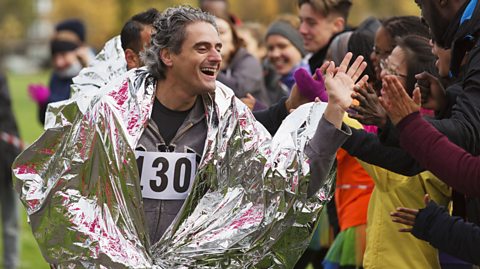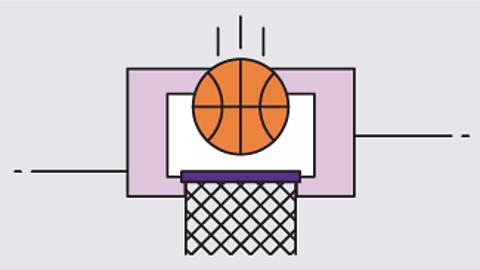The sight of those weary but triumphant runners crossing a marathon finish line: itтs enough to inspire anyone to crack the trainers out of their box, and start pounding the pavement to emulate their achievements.
You'll see it in this year's Great North Run - which is a half-marathon - as well as the London Marathon, now scheduled for October due to Covid precautions.
All of those runners will no doubt inspire others to get involved. So, how realistic is it for someone who, beyond school PE class, has never run in their lives, to be ready for a challenge of potentially 26-plus miles the following year?

According to the experts, itтs entirely doable, and wouldnтt take as long as you may think. But be prepared to put a lot of training hours in, and for the event itself to be one of the most challenging things youтve ever done.
Six is the magic number
The London Marathon organisers put out a training plan for beginners on the official website, especially with so many runners entering to raise cash for a good cause, rather than build an impressive athletics CV.
And if youтre looking for a ballpark figure for the time required to be route-ready, think at least six months.

The first four to eight weeks of that time should be spent running regularly to get yourself used to having an exercise routine. After that, a 17-week training programme exists, which is a mix of easy runs, break days, stretches, hill runs and fartlek runs (splitting your pace between slow and fast speeds). While marathon training should be a challenge to a beginner, the organisers are keen to stress that it should never be overwhelming.
Listen to your doctor
Before anyone jumps off the sofa and prepares for a distance that could take a beginner more than five hours to complete, remember that your health is more important than anything.

The NHS has its own guide to taking up running from a standing (or sitting) start, and suggests building up to a 5k run rather than a marathon, although this could also act as a milestone on the way to completing a longer distance.
Their online advice reads: тIf you feel out of shape, or you're recovering from injury or worried about an existing condition, see your GP before you start running.т
Build your mind as well as your body
The organisers behind the Great North Run and other long-distance events also offer advice for first-time participants on their website. Their marathon training plan involves a 24-week schedule, but also advice on motivation and the mental preparation which is just as important as getting your body ready.
In an article on the Great Run website, sports scientist and former Olympic pentathlete Professor Greg Whyte says: тYou are very unlikely to enter a run with the absolute belief that you will be successful. Whether your goal is to complete the distance, run a particular time or to win, it is only natural to possess some doubt.
тBut see this as a positive thing т if success was a foregone conclusion it wouldnтt be worth achieving! Unlike motivation, which can often be high when you start out, belief in your capabilities builds more progressively.т

Mike's story
But as with anything, it's always good to hear from someone with experience.
Mike Addelman is a media relations officer at University of Manchester and one of the organisers of the cityтs Purple Wave running event.
He knows at first hand what itтs like to change your lifestyle and become a runner, although he worked his way up to a marathon after competing in events over shorter distances.
Mike told the ТщЖЙЙйЭјЪзвГШыПк in 2019: тIt feels like an amazing achievement to complete a marathon and Iтm very proud that I Iтve done three of them. It really is for most people, but I would suggest starting at 5k, then building up to 10k, a half-marathon and then going for a marathon.
тI started running seven years ago and anyone who knew me at school would be amazed to know that Iтve run a marathon, as I was always the last to finish when we did cross country.
тBy the time of my third marathon, I found it easier as I was running five or six times a week at that stage. My first marathon was hard though: I really did тhit the wallт, as they say, and it was tough to get through it. But the emotions were very high at the end of it so it was very worthwhile. I was in tears when I crossed the line. In fact, I always am at the end of any race.т
Have a long think. Weigh up the pros and cons. Would you rather tackle the Great North Run next September if a full marathon route feels too challenging?
If you're set on completing a marathon and 2022 sounds too ambitious, aim for 2023 instead (when the London Marathon is expected to return to its traditional April date), or later. But if you do have that finish line in your sights, the very best of luck.
This article was first published on ТщЖЙЙйЭјЪзвГШыПк Bitesize in 2019 and has subsequently been updated.
Four jobs that could save the planet
The stories of four people who do their bit for our ecological future every time they clock in for a shift.

How to revise away from your desk
You don't have to be chained to your bedroom when getting that study done.

GCSE Physical Education. collection
If you want to be a sports star like Nicola Adams, brush up on your PE revision here.
